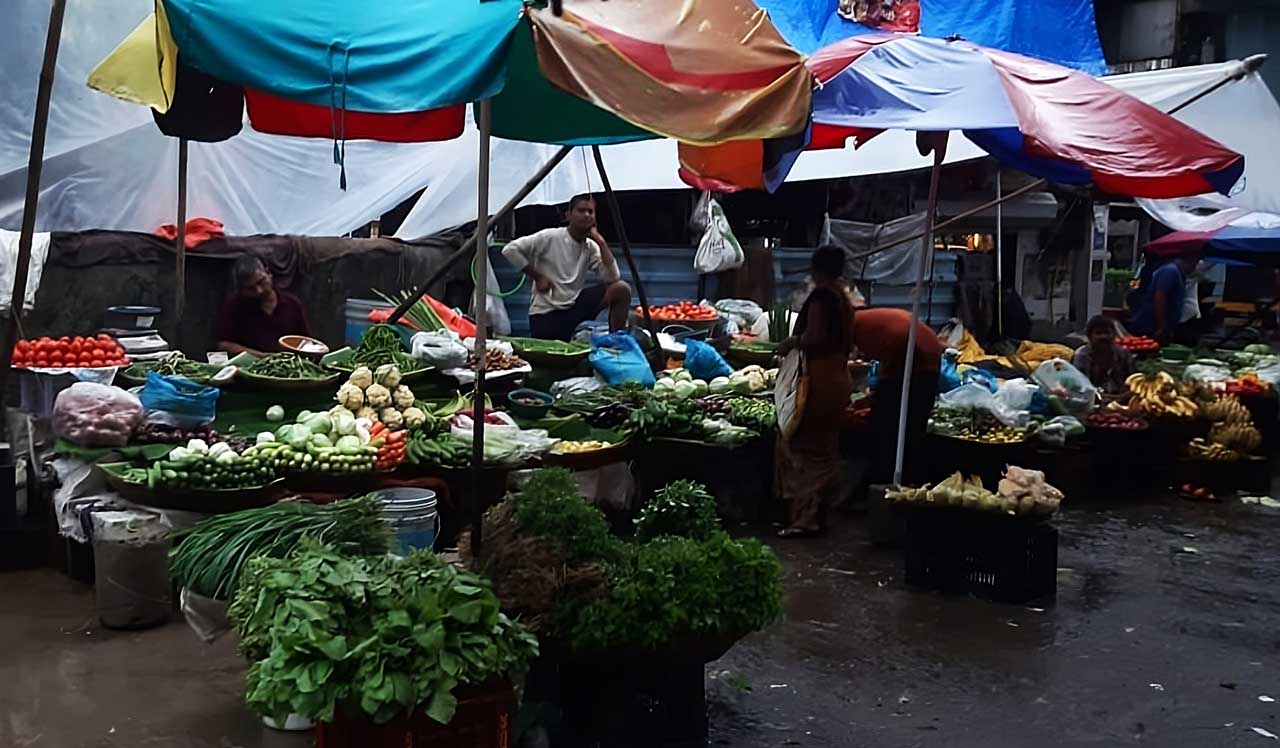
I understand that the price rise on essential commodities is very difficult for commoners to cope with. But we should understand that the problem is common in every Monsoon or in extreme weather. Each season comes with some or other challenges; some fruits and vegetables are not suitable for summer and some are not suitable for winter, and most of them are not available in winter. Farmers don’t get the price they expect. That’s the reason we see them throwing vegetables rather than transporting them to the market. During the monsoon, there are supply chain issues; not getting wage workers and transportation are the biggest challenges. Vegetables are receding even in wholesale prices, which were at -1.5% in April as against -2.22% in March. Apart from vegetables and fruits, price pressures also remain in other food items such as milk and milk products, as well as cereals and pulses, due to the impact of the monsoon.
The prices of tomatoes and other vegetables have considerably risen in various parts of India due to several factors, including heavy rainfall caused by the cyclonic storm Biparjoy. Tomato prices have increased four to five times as a result of the heavy rainfall, followed by the onset of the monsoon season, which has led to the damage of farmers’ crops. The prices of all vegetables have increased by one to two times. The local farmers’ produce was devastated, preventing it from reaching the local market. Moreover, retail inflation in milk and milk products did not ease in June but remained high at 8.85%.
Prices of milk and milk products may continue to be elevated until the start of the winter months, given the decline in domestic production. In the coming months, the waning of a favorable base will also exert upward pressure on overall retail as well as food inflation. Of course, a favorable base effect may keep the headline number low, but the index would continue to rise on a month-on-month basis.
During the rainy season, there is also a high demand for particular vegetables that are essential for monsoon-specific dishes or are desired during rainy weather. This higher demand leads to price inflation as the available supply may not be sufficient to meet the increased consumption. For example, people prefer soups before having the main course of food during Monsoon season because tomato prices have gone up and the soup or salad is certainly expensive. Some regions heavily rely on specific areas for the supply of certain vegetables. If those areas are adversely affected by the monsoon, such as experiencing crop damage or transportation issues, it can lead to a shortage in the market and subsequently higher prices.
Heavy rainfall during the monsoon has led to waterlogging and flooding, which have damaged local crops, made them unsuitable for consumption, or reduced their harvest. This limited supply of vegetables leads to an increase in prices. Vegetables from Vasai are considered the most organic and homegrown, and people prefer buying them for their authenticity. Today, these vegetable sellers in Vasai are missing from the markets because their crops are ruined and whatever supply they have is not affordable to transport. Monsoon rains have caused transportation and logistical challenges, making it difficult to transport vegetables from farms to markets. Roads are blocked, and the overall movement of goods is hindered. This disruption in the supply chain has reduced the availability of vegetables, causing their prices to rise.
We, the commoners, should understand that these challenges are beyond the capacity of government or administration to address. No one has control over natural calamities. There is no point in hitting the headlines against the government because they are immune to such occurrences. Each monsoon, there is pending construction work, debris is around the city, gutters are overflowing with garbage piles, potholes are beyond repair, and manholes are not covered in many areas. The administration is busy playing the blame game, and the government is busy attacking the opposition. The opposition is scared to question the government, and commoners have no say.

